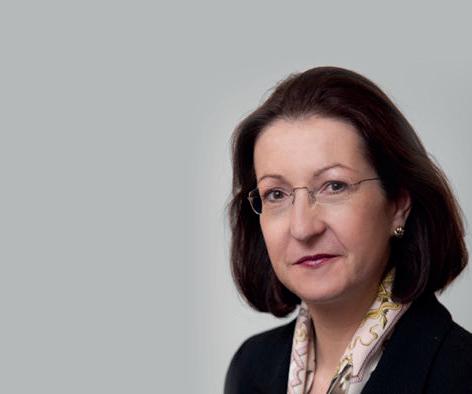
3 minute read
Interview With Veronique Buehrlen KC
You have been shortlisted as “Arbitrator of the Year” by the Legal 500, what do you think the most important skills of an arbitrator are?
I would put the ability to listen carefully and to see the wood from the trees pretty high up on my list. A full and proper understanding of the concept of fairness and the need to ensure that both parties have the opportunity comprehensively to present their respective cases is in my view key. It then goes without saying that a detailed knowledge of the arbitral process is also very important as well as a willingness to step in and take control of proceedings when needed.
Advertisement
You have a mixed practice which includes instructions as arbitration counsel alongside arbitrator appointments, how does your experience in each of these roles help in the other?
I think the dual role gives me a huge advantage. When acting as arbitrator I have not forgotten what is involved for the parties and their counsel in preparing their respective cases, what works, what does not work and how long it takes. When acting as counsel I have a detailed understanding of what it is that the Tribunal needs in order to come to a decision and to draft an award as well as an understanding as to how the various arbitration institutions work.
You also sit as a Deputy High Court judge in the TCC, has this experience influenced your approach to counsel work?
Yes certainly. Sitting as a Deputy High Court judge has given me a much more in-depth understanding of the workings of the Court and of what it is a judge requires from counsel and why. Sitting on the other side of the desk gives you an invaluable insight, particularly in terms of advocacy and the presentation of a case to the Court.
Clients recommend you as “working at the coal face of the dispute”. Why do you think this is so valued in our industry?
Many of the cases we deal with involve detailed and complex projects – the devil is in the detail, so to speak, so it is key to fully understand it. Fully understanding your case also gives you a significant advantage in Court or in any other hearing. It also means that I am very much part of the legal team which is something I enjoy. I think it can be key to the success of certain types of cases to have a team whose leader is willing to be fully immersed in the case and to help with whatever needs to be done.
What is the most interesting project you have worked on to date?
I have done more interesting cases than I can count but I suppose that the South Stream litigation would be pretty much top of my list. The case was factually, legally and evidentially complex and overlayered by the geopolitical issues involved. Other fascinating cases over the years include a case about the theft of a masterpiece out of Cuba in the 1950s and a case concerned with events impacting the release of Star Wars Episode VII: The Force Awakens, albeit that neither of those were construction nor arbitration cases!
What has been the most rewarding experience of your career so far?
That is a very difficult question. I am thrilled to be a Silk and to sit as both a Deputy High Court Judge and an international arbitrator doing really interesting work. I often ask myself “what’s not to like”?
What do you think are the biggest challenges currently facing the construction industry?
I think there are numerous challenges but delays to supply chains and force majeure are key issues impacting most of the cases I am involved with.
Outside of the law, what are your other interests?
I read and I garden (keeps me sane), and I try to keep my son and daughter in check!






